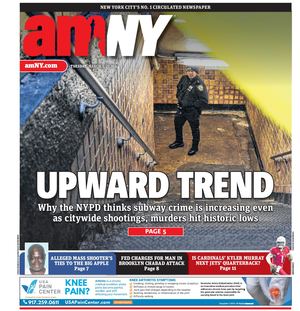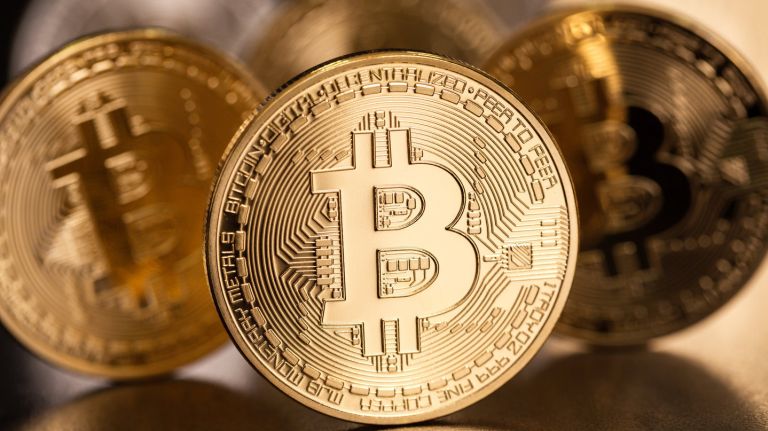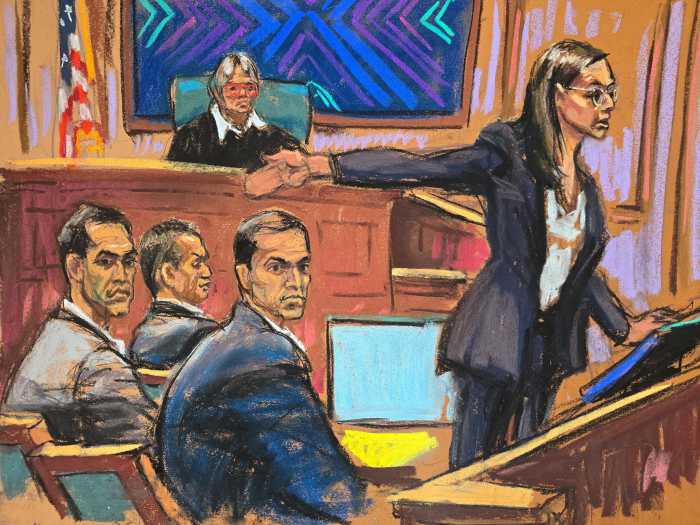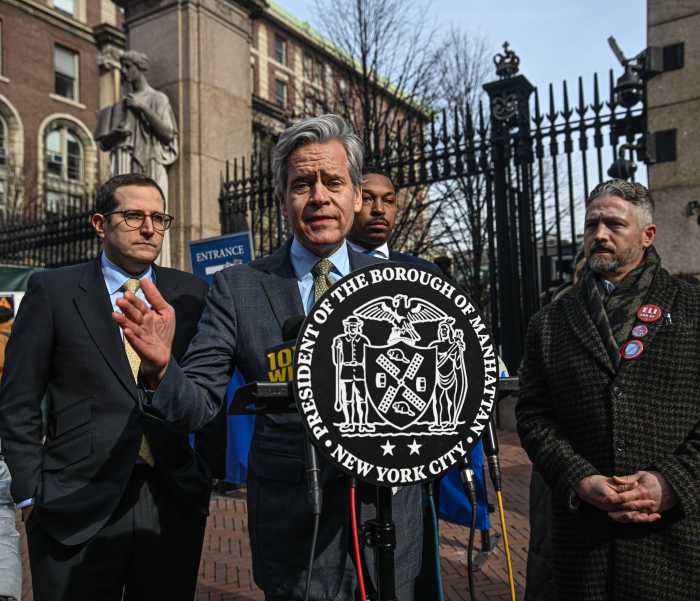
As the value of a Bitcoin soars toward $10,000, consumers haven’t quite caught on to the alternative currency accepted at a number of local businesses.
La Sirène soft-opened its second location on the Upper West Side a month ago and turned heads when it announced that no Mastercard, Visa or Discover credit cards would be accepted. The French restaurant is accepting only Bitcoin, American Express or cash at its new spot.
La Sirène owner Didier Pawlicki, 57, believes Bitcoin and cryptocurrencies are the future.
“The banking system is totally outdated; now we make money among ourselves. It’s democratic,” Pawlicki said. “It’s a totally new era of economy. You are your own bank.”
In the simplest possible terms, Bitcoin is a digital cryptocurrency that is regulated to have zero inflation by a network of computers.
Daniel Sim, 37, owns Lean Crust Pizza in Clinton Hill and said that in 2013, as Bitcoin was riding a wave of media attention, the restaurant averaged about 15 to 20 Bitcoin transactions a week over a six-month span. However, among the six or seven businesses his family owns in the area, Sim has seen only about three Bitcoin transactions during all of 2017.
“I think one of the biggest hurdles for Bitcoin is going to be mass consumer adoption, making it more efficient and easy to use,” Sim said. “From a business standpoint, there’s no reason why any business shouldn’t accept Bitcoin. Absolutely none.”
For businesses, the process is as simple as downloading an app, such as Coinbase, and creating a “receiving wallet,” just as you would create any digital account. Nick Spanos, co-creator of Zap Project and Bitcoin Center NYC, said other business incentives include lower processing fees than those of credit cards and no risk of chargebacks.
“On the other hand, it would require training staff about Bitcoin and having a mobile device for them to use,” Spanos said.
In the case of Lean Crust Pizza, Sim used his receiving wallet app to generate a QR code that he printed and posted at the restaurant. Customers who wish to pay with Bitcoin simply scan the QR code with their own wallet app and transfer funds. The experience is akin to that of Chase’s QuickPay feature or apps like Venmo. Sim believes people simply don’t understand how simple the process is.
“Every single person has debit and credit cards; we all use them on a daily basis. But if you ask someone to explain how they work intricately, no one could tell you that,” Sim said. “And it’s the same with Bitcoin . . . the average consumer just wants to know that it works. Period.”
Chris Vlacich, 46, co-owns Piccola Venezia restaurant in Astoria and said although the restaurant, started by his father in 1973, has been accepting Bitcoin for about three years, it has yet to secure its first transaction.
“The cost of entry was literally zero dollars, and the risk for us is zero because we’re never actually holding the currency,” Vlacich said of a process that allows him to accept Bitcoin and have it converted into dollars within seconds. “I honestly don’t know what’s stopping people. I know more than one person who has made a fortune trading the stuff, so it’s out there. Maybe it’s just in an in-between stage right now.”
His brother Roberto, who co-owns the restaurant, added that they “realized the trend that’s happening, and that people [were] going toward that form of payment.”
A sense that Bitcoin is just a fad despite the recent surge in value seems to be compounding the problem.
Major firms have been resistant, with JPMorgan Chase boss Jamie Dimon calling Bitcoin devotees “stupid.”
“The biggest risk we face is: is this hype? Is it a fad? Or is it here to stay?” Clayton Heijman, chief executive officer for Privium Fund Management in the U.K., Netherlands and Hong Kong, said to The Washington Post. “Is it the Tamagotchi from 20 years ago?” he added, referring to the digital pet simulators that were one of the biggest fads of the 1990s.
Heijman said he’s spoken with three to four digital-currency funds a week for the past few months, but that a number of key questions, including the potential for money laundering, would need to be answered before he’d consider bringing them onto his platform.
Many experts think Bitcoin is unlikely to replace debit and credit cards or cash soon because of the difficulties in supporting high sustained rates of transactions per second.
Jeremy Rubin, a Bitcoin Core developer and founder of Scaling Bitcoin, said the digital currency thrives in markets with less trust between trade partners and governments, not necessarily for everyday transactions.
“Bitcoin doesn’t need to compete with Visa for day-to-day consumer traffic anytime soon — though it eventually will — to succeed,” Rubin said.





































